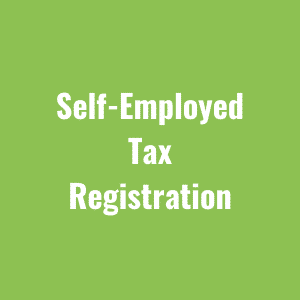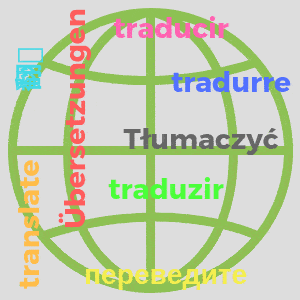How to get a Freelance Visa for Germany
Last Updated: November 2021
Your Guide to Getting a German Freelance Visa*
* It's actually a residence permit for the purpose of self-employment, but everyone calls it the freelance visa!
*** Disclaimer: This Guide is not legal advice. Everyone’s experience and situation is different. I will share my personal experience obtaining a freelance visa in Berlin as an American. ***
*** Disclaimer: This Guide is not legal advice. Everyone’s experience and situation is different. I will share my personal experience obtaining a freelance visa in Berlin as an American. ***
Citizens from the USA (excl. green card holders), Canada, Australia, South Korea, Japan, Israel, Brazil, Argentina, Chile, Uruguay, New Zealand, Venezuela and Colombia (see the full list here) are automatically granted a 3-month tourist visa immediately upon landing in Germany. You go through customs as you exit the plane and get a stamp in your passport that allows you to be in Germany for 3 months. You do not need to apply for a visa prior to entry.
I decided to move to Berlin on a whim, and also, because of something my Berlin-based tattooist said as I sat in her chair for ten hours getting inked in winter 2016. Berlin is an amazing city, gritty, international, with a complex history that sinks its teeth in visitors and never lets go. I loved it from the minute I wandered around the neighborhood where my hotel was based; I loved the art, the weather, how real it felt…I loved all of it and I decided that four days wasn’t going to be long enough to explore.
As I was getting a tattoo the artist said that she was in Berlin (and Germany) because they have freelance visas for people with skills or for artists.
I was intrigued and decided to do some further research to determine if I qualify for this type of visa, and, if I could, move to Berlin in the future. That future came far more quickly than I’d imagined or planned for, but I decided that even if it was a few years earlier than I’d planned, I was going to move to Berlin and take a leap of faith.
I’m going to share the facts about the freelance visa for Germany in today’s article, and next week I will share my personal experience obtaining this visa.
Check here to see if you need to apply for an entry visa for Germany from abroad.
The rules of the Schengen Zone as they apply to American passport holders (and to nationals of those countries for which the EU has abolished the visa requirement) are as follows: US citizens are allowed to be in the Schengen Area for 90 days within a six month period (180 days); these days are not consecutive and once you hit that 90-day mark, your tourist visa expires. You have to leave the Schengen Area for 3 months for that tourist visa to essentially “reset” and then you can return for another 90-day period.
If you are just traveling around, planning to leave the Schengen Zone for 90 days every 3 months is easily dealt with, but if you, like me, want to live in Germany for longer than 3 months you have to apply for a residence visa.
Everything you need to know about the Schengen Area: read here the brochure provided by the European Commission.
The German residence visas available to US citizens (and to nationals of those countries for which the EU has abolished the visa requirement) include the freelance work visa, the freelance artist visa, and the job seeker visa; there are others but these are the only ones I will cover in these articles because these are the ones I’ve researched and applied for and have personal first-hand knowledge.
The EU has withdrawn the visa requirement for visits of up to three months in a six-month period for citizens of certain states. See here if you need to apply for an entry visa for Germany from abroad.
The freelance residence visa allows you to live and work within Germany for a period of 1-3 years (some freelancers get approved for only one-year visas while others are approved for up to 3 years-it depends on your job, your skills and education, your savings, etc).
The required steps once you land in Germany using the 90-day tourist visa are as follows:
- Get a flat or a room that allows you to register for your Anmeldung (see this blog post).
- Do your Anmeldung to get your registration certificate and your tax ID (see this blog post).
- Open a German bank account (see this blog post). I highly recommend N26 for freelancers working in Germany.
- Get proper, German health insurance (this is a really tough and important detail that includes so many variables and issues that I won’t cover the information in this blog-all I will say is finding a reputable insurance broker, I can recommend this independent insurance company that works with expats and freelancers).
- Register as a freelancer/ self-employed to get tax and VAT numbers. You can do this process online, for free and in English using this website.
- Make an appointment at the LABO (Auslanderbehorde- foreigner’s office) before your 90-day tourist visa is up.
- Gather all documents (fleshed out below).
Ok, so some further info re: Step 4. Once you are in Germany on a tourist visa, go online and book an appointment at the LABO; the earliest available date could potentially be 4-8 weeks out. As long as you schedule the appointment (book the appointment) within your tourist visa, even if the appointment isn’t until 2-5 weeks (or longer) after your tourist visa expires, you are granted an “extension” of the tourist visa-because you are actively working on a residence visa to stay.
It’s a weird grey area, but basically, book the appointment online within your 90 days as a tourist and you are legally allowed to remain past your tourist visa end date.
The dreaded documentation: this is the heart of German bureaucracy (paperwork and ticking boxes) so this needs to be SPOT ON, with no deviations and all in order.
The required documentation that you MUST bring with you to the LABO appointment is as follows:
- Proof of the main residence in Berlin (certificate of registration + rental contract + landlord's confirmation letter).
- Proof of Health Insurance (your insurer will include proof of insurance when you sign up).
- 2-3 “Letters of Intent” from potential, local, future clients. These are hugely important and not listed on the LABO website. These are letters from local German companies that state they are interested in hiring you based on your skills for working here in Berlin. These are not contracts and are not obligatory for the businesses in any way- these just state that, based on your skills and education, you have potential interest from local companies.
- Bank statements: I’ve been told that the magic number the LABO wants to see in your savings is 8,000 euro; this is mainly to prove that you have enough reserves/savings to maintain your living situation during lean times.
- The application form: this is called the Antrag auf Erteilung eines Aufenthaltstitels. You will find this form on the LABO website in many languages; fill it out online, print it off and bring it with you to the appointment.
- Profit and Loss paperwork filled out. You will also find these templates on the LABO website.
- Finance Plan: This is a sheet that states how much money you have. Find it here.
- Cover Letter stating why you want to be in Germany, what your skills and education are, and your professional background.
- Copy of CV/Resume in German: details about all relevant clients you have worked with and projects you have worked on.
- Diplomas and/or certificates.
- A valid passport
- Appointment confirmation.
- [If applicable] Professionnal permit(s).
These are the basic facts of the Freelance Residence visa and the required documentation.
A few additional facts:
On the day of the appointment arrive early and be prepared to wait, bring 110-120 euros in cash with you for the visa application fees, bring 2 passport photos and make certain that you aren’t smiling in them- the Germans are quite strict about this fact, and bring with you a German speaker. You can hire translators and other visa specialists to accompany you to the appointment because you need them-unless you speak fluent German.
Remember the law in Germany is that no language other than German will be spoken by the workers of the LABO because they are “speaking” for the State and the language of the State is German-they most likely do know and speak English but the law doesn’t allow them to conduct State business in any language other than German.
If you’ve got all the required documents, and all are filled out correctly, you most likely will be issued your freelance visa that same day.
If you would like to know how to get a 'freelancing' tax number (in German: Steuernummer), check out this article.
Read this article to know how you can easily do your taxes as a freelancer in Germany.
Good luck!

























3 Comments
This comment has been removed by a blog administrator.
ReplyDeleteThis comment has been removed by a blog administrator.
ReplyDeleteVery informative post! There is a lot of information here that can help any business get started with a successful social networking campaign. Freelance
ReplyDelete